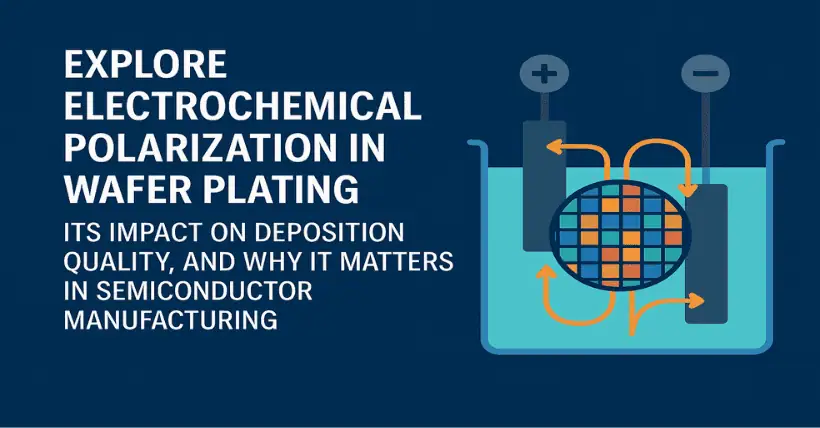During the metal electrodeposition process, if cathodic polarization is caused by slow mass transfer, it is known as concentration polarization as discussed previously; if cathodic polarization is caused by the sluggish discharge of metal ions on the electrode surface, it is referred to as cathodic electrochemical polarization.
01
What is polarization?
Polarization = Actual potential − Equilibrium potential
The essence of polarization is: the electrode’s reaction capability is insufficient to match the current you intend to apply → the potential is forced to deviate → electrical energy is “lost” in potential deviation.
02
Causes of electrochemical polarization:
- Intrinsically difficult discharge of metal ions
The electrochemical nature of the metal ion determines that its discharge (reduction) reaction on the cathode is inherently slow.
Example:
Copper (Cu²⁺) discharges relatively easily;
Zinc (Zn²⁺) and Nickel (Ni²⁺) discharge with more difficulty → requiring greater potential deviation (polarization) to drive the reaction.
- Presence of a “barrier layer” on the electrode surface
Metal ions must pass through an obstacle before discharging on the cathode (wafer). This barrier is usually caused by electroplating additives. Additives adsorb onto the cathode (wafer) surface and form an orderly “monolayer” or “multilayer barrier” on the surface.
Metal ions (e.g., Ni²⁺) must penetrate this molecular barrier before reduction can occur; this artificially slows the ion discharge rate → increases electrochemical polarization.
If the barrier layer is sparse, ions can penetrate quickly; if additive concentration is high and adsorption density is high → ion discharge rate drops significantly → larger negative shift in polarization potential.
03
Why intentionally introduce electrochemical polarization?
Benefits: 1. Suppresses crystallization rate 2. Enhances brightness 3. Levels recessed areas 4. Reduces co-deposition of impurities

Disclaimer: This article is created by the original author. The content of the article represents their personal opinions. Our reposting is only for sharing and discussion purposes and does not imply our endorsement or agreement. If you have any objections, please get in touch with us through the provided channels.








